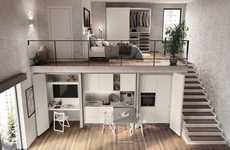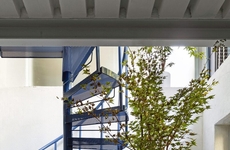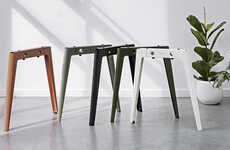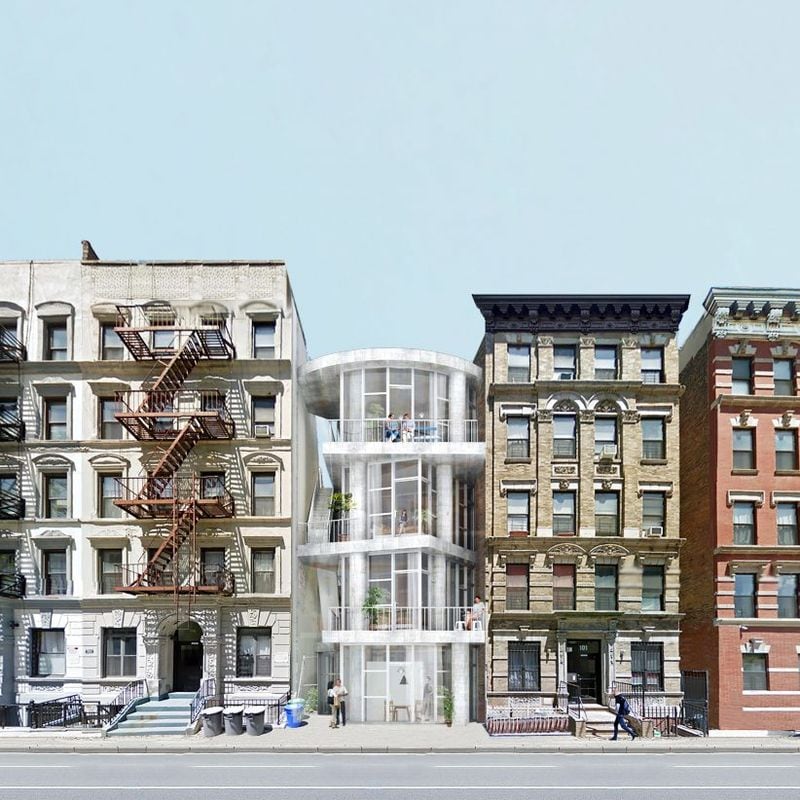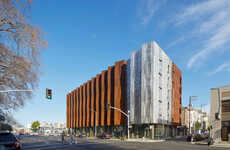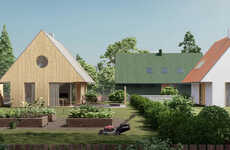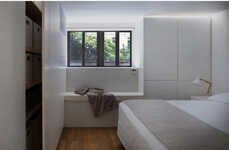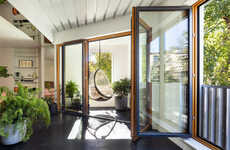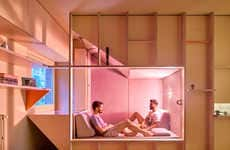
Kwong Von Glinow Tackles Loneliness in Urban Environments
Kalin Ned — December 10, 2018 — Art & Design
References: kwongvonglinow & dezeen
Kwong Von Glinow, an architectural studio based in Chicago, shares its plans for its "Table Top Apartments" — the proposal is one of those modular building systems that seek out to provide a compact and function-forward housings solution for the metropolitan environment.
The name of the project is derived from the appearance of the apartments. That is, each unit looks like a table top as it is "based around a uniform set of four supporting posts." With this housing development, Kwong Von Glinow hopes to provide a solution for urban loneliness.
Many modular building systems are currently being proposed in cities to deal with population density and poverty. The Chicago-based firm's Table Top Apartments are specifically designed for the New York environment as they are able "to fit on the city's smallest lot sizes."
The name of the project is derived from the appearance of the apartments. That is, each unit looks like a table top as it is "based around a uniform set of four supporting posts." With this housing development, Kwong Von Glinow hopes to provide a solution for urban loneliness.
Many modular building systems are currently being proposed in cities to deal with population density and poverty. The Chicago-based firm's Table Top Apartments are specifically designed for the New York environment as they are able "to fit on the city's smallest lot sizes."
Trend Themes
1. Modular Building Systems for Compact Urban Housing - This trend provides an opportunity for architects and engineers to design modular units that are compact, functional and provide solutions for urban loneliness.
2. Individualization in Modular Building Systems - This trend provides an opportunity for customization of modular units, which suits the individual needs of urban dwellers.
3. Sustainable and Eco-friendly Modular Building Systems - This trend provides an opportunity for architects and engineers to design modular buildings that are environmentally friendly, energy-efficient, and sustainable.
Industry Implications
1. Architecture - Architects can leverage modular building systems to create innovative solutions for urban housing and tackle the issue of loneliness in cities.
2. Engineering - Engineers can leverage modular building systems to create efficient and compact urban housing solutions that reduce the use of space and energy.
3. Construction - The construction industry can leverage modular building systems to create affordable and functional housing solutions for urban populations and tackle the issue of poverty.
2.4
Score
Popularity
Activity
Freshness



